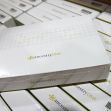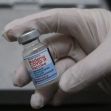In 1951, a 30-year-old Black woman by the name of Henrietta Lacks walked into Johns Hopkins Hospital for a diagnosis and treatment of cervical cancer. Today, Lacks’ estate is suing a biotech company for allegedly selling and profiting off of Lacks’ cells that were originally collected at that hospital.
Lack’s cells have become a cornerstone of the medical community. Her cells are the first human cells to be successfully reproduced, creating the immortal ‘HeLa’ cell line. Unlike other human cell cultures that have been collected, Lacks’ sample is the only human cell culture able to survive for several days before they die out. Lack’s cells were able to reproduce at a stunning rate, giving them the distinct feature of an immortal cell line. Lacks’ original cells were cultured and shared throughout the scientific community and have helped create essential vaccines like the polio vaccine and further the advancement of science.
Lacks’ cells were first collected on February 8, 1951, after Lacks was admitted into Johns Hopkins Hospital. The cells were collected by Dr. George Otto Gray from a biopsy of Lacks’ cancerous cervical tissue. Lacks was not informed that her cells were going to be collected and cultured, a practice that was commonplace because of lacking consent regulations at the time. It was not until 1973 that the Lacks family was contacted about the possible contamination of other cell lines by Lacks’ cells that they found out the cell culture existed in the first place.
The lawsuit which was filed last week accuses the company Thermo Fisher Scientific Inc., based in Waltham, Massachusetts, of obtaining the now commercialized cell culture and attempting to sell the cells for profit.
The family’s attorney is represented by several lawyers including prominent civil rights attorney Ben Crump. Over the past two years, Crump has been the face of countless lawsuits aimed at undoing social injustice across the nation, particularly within the nation's law enforcement culture.
"It is outrageous that this company would think that they have intellectual rights property to their grandmother's cells. Why is it they have intellectual rights to her cells and can benefit billions of dollars when her family, her flesh and blood, her Black children, get nothing?" Crump shared during a news conference last Monday.
Christopher Seeger, another attorney representing the family, shared that the biotech company "shouldn't feel too alone because they're going to have a lot of company soon." His ominous statement hints at similar lawsuits coming down the pike at any of the countless other companies that have access to the HeLa cell line. At the time of his collection of Lack’s original cell culture, Dr. Gray freely shared the cells with any scientist who wanted to advance scientific research. The cells were later commercialized. Although a patent doesn’t exist for the original culture, there are different patents in place for how the HeLa cells can be used.
In addition to accusing the biotech company of using the cells without consent, the complaint is asking that the company be required to "disgorge the full amount of its net profits obtained by commercializing the HeLa cell line to the Estate of Henrietta Lacks." It also wants the company to stop using the cells without the estate's permission.
Although Johns Hopkins Hospital maintains that it has never sold or profited off of the cell line, companies like the one at the center of the lawsuit boast high revenues because of their operations which may or may not have been enhanced because of the HeLa cell line. Thermo Fisher Scientific Inc. boasts on their company site that they generate annual revenue of about $35 billion.
On their website, the hospital does show its support for the lacks Family by explaining, “At several points across those decades, we found that Johns Hopkins could have — and should have — done more to inform and work with members of Henrietta Lacks’ family out of respect for them, their privacy and their personal interests.”
In line with the controversy surrounding the HeLa Cell line, the family’s attorneys point out that several members of the Lacks family have faced medical hardships without access to health insurance or proper health care. While Lacks’ family members struggled to get medical care, Mrs. Lacks’ cells were being used to further the advancement of science.
The complaint highlights the systemic inequalities that Black people have experienced and continue to struggle against. "The exploitation of Henrietta Lacks represents the unfortunately common struggle experienced by Black people throughout history," the suit says. "Indeed, Black suffering has fueled innumerable medical progress and profit, without just compensation or recognition. Various studies, both documented and undocumented, have thrived off the dehumanization of Black people."
Lacks’ cell culture has helped shape the medical world all while sparking controversy around ownership over the first human cell culture to successfully be reproduced. In addition to her specific cell culture, HeLa cells have long been the source of controversy surrounding informed consent. In the Supreme Court of California, some of the controversy was put to rest after the courts ruled in Moore v. Regents of the University of California that any person’s discarded tissue can become commercialized and is no longer the property of that person.
Lack’s case has also helped tighten up consent standards. In 1981, the Common Rule was incorporated into the U.S. rule of ethics. Under the Common Rule, doctors must inform patients if they intend to use the details of a patient's case or even biological material related to their case in medical research.






